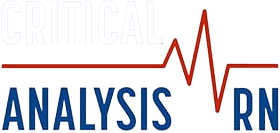Personal injury cases can be intricate and multifaceted, requiring the expertise of various professionals to unravel the complexities. One such professional is the forensic nurse, also known as an expert witness, whose specialized knowledge in both medicine and forensic science allows for a detailed examination of injuries.
Let’s delve into the specifics of how a forensic nurse reviews personal injury cases and what they look for in these types of cases.
Understanding Personal Injury Cases
Personal injury cases encompass a wide range of incidents, from slip and fall accidents to vehicle collisions and workplace injuries. Each case presents unique challenges and requires a thorough investigation to determine the nature, extent, and cause of the injuries sustained.
Detailed Examination Process
When a forensic nurse reviews a personal injury cases, they follow a meticulous and systematic process. This involves assessing the medical history, examining the physical injuries, and evaluating the consistency of the reported incident with the injuries observed. Let’s break down each step in detail.
Medical History Review
The first step in the review process is to gather and analyze the individual’s medical history. This includes previous medical records, any pre-existing conditions, and treatments received before the incident. Understanding the baseline health of the individual is crucial in distinguishing between old injuries and those directly related to the personal injury cases.
Injury Examination
Forensic nurses conduct a comprehensive physical examination to document all injuries. They pay close attention to the type, location, and severity of each injury. Here are some key aspects they look for:
1. Type of Injury
Injuries can be categorized into different types, such as fractures, contusions, lacerations, abrasions, and internal injuries. Each type has distinct characteristics that help forensic nurses understand the mechanism of injury.
2. Location of Injury
The location of injuries on the body can provide significant clues about the nature of the incident. For instance, bruises on the lower back might indicate a fall, while injuries on the chest or head could suggest a vehicular collision.
3. Severity of Injury
Assessing the severity of each injury helps in understanding the impact of the incident on the individual’s health. Forensic nurses evaluate whether the injuries are superficial or if they involve deeper tissues and organs.
Consistency with Reported Incident
A crucial aspect of the forensic nurse’s role is to evaluate the consistency of the injuries with the reported incident. This involves comparing the individual’s account of the event with the physical evidence observed. Here are some key considerations:
1. Mechanism of Injury
The mechanism of injury refers to the specific way in which the injury occurred. Forensic nurses analyze whether the described mechanism, such as a slip, fall, or collision, aligns with the observed injuries. For example, the pattern and distribution of bruises can indicate whether they are consistent with a fall or if they suggest a different cause.
2. Temporal Relationship
Establishing the timeline of injuries is essential. Forensic nurses assess the age of each injury, looking for signs of healing or inflammation that can indicate when the injury occurred. This helps in determining whether the injuries are recent and related to the incident in question or if they predate it.
3. Injury Patterns
Certain injuries have characteristic patterns that can provide insights into how they were sustained. For instance, the shape and size of bruises can suggest the type of object that caused them. Similarly, the presence of defensive wounds, such as cuts or bruises on the hands, can indicate an attempt to protect oneself during an altercation.
Documentation and Analysis
Accurate documentation is a cornerstone of the forensic nurse’s work. They meticulously record all findings, including detailed descriptions of injuries, measurements, and photographs. This comprehensive documentation ensures that all critical information is preserved for further analysis.
In addition to physical examination and documentation, forensic nurses may use various tools and techniques to enhance their analysis. These can include imaging studies like X-rays or CT scans to assess internal injuries, as well as laboratory tests to detect any underlying conditions or complications.
Interpretation of Findings
Once all the information is gathered, forensic nurses interpret their findings to form a coherent understanding of the injuries. This involves integrating the medical history, physical examination, and any additional tests or studies. The goal is to create a clear and objective picture of the individual’s injuries and their potential causes.
Forensic nurses also consider other factors that might influence the interpretation of injuries, such as the individual’s age, general health, and lifestyle. For example, older adults might have more fragile bones, making them more susceptible to fractures from relatively minor falls.
Communication of Findings
While this article doesn’t delve into interactions with law enforcement or legal professionals, it’s worth noting that forensic nurses play a crucial role in communicating their findings. They prepare detailed reports that summarize their observations and conclusions, ensuring that the information is presented clearly and accurately.
In personal injury cases, the work of a forensic nurse is invaluable in uncovering the truth about how injuries were sustained. Their expertise in both medical and forensic science allows them to provide a thorough and objective analysis, helping to ensure that all aspects of the case are carefully considered.
Details Are Critical in Personal Injury Cases
The role of a forensic nurse in criminal cases reviewing personal injury cases is both detailed and complex. By meticulously examining the medical history, physical injuries, and consistency with the reported incident, forensic nurses provide essential insights into the nature and cause of injuries. Their careful documentation and interpretation of findings contribute significantly to the overall understanding of personal injury cases, highlighting the importance of their expertise in this field. Would you like to discuss your case? Just give me a call at (432) 661-3639 or email me today!
